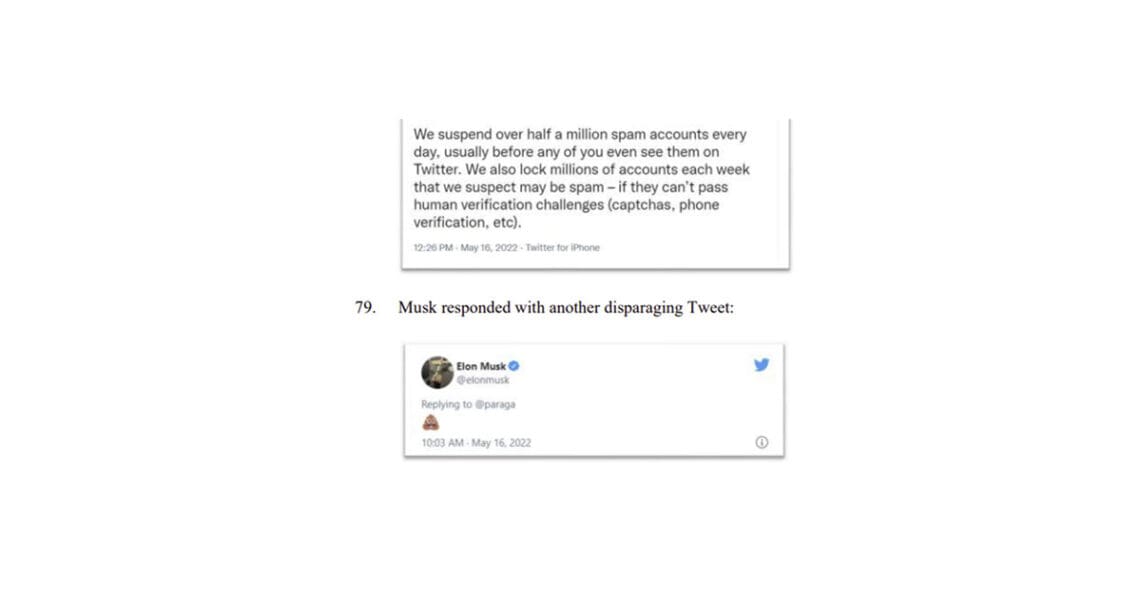Emojis are not just cute and fun symbols that spice up our online conversations. They are also powerful and expressive tools that can communicate complex messages and emotions. Organizations that deal with digital communications — and in this day and age, what organization doesn’t? — must be aware of the risks and challenges that emojis pose and adopt effective strategies to manage and analyze emoji data. As Ajay Bhatia of Veritas Technologies explains, emojis may be the language of the digital age, but they are not without pitfalls and ambiguities.
When Elon Musk tweeted a single emoji at Twitter during their tumultuous pre-acquisition legal battle, he likely didn’t expect to spark a court debate over the meaning behind his visual slight. Yet that little icon has now been entered into evidence against the billionaire entrepreneur, and Musk’s insult joins the growing list of court cases demonstrating how these tiny images are taking on gargantuan legal significance.
Just as ancient Egyptian hieroglyphs evolved into a complex writing system 5,000 years ago, the modern pictograms known as emojis are becoming the visual language of the digital era. What originated decades ago in Japan as a fun way for people to add images to text has exploded into an everyday way to communicate for billions globally.
As emojis continue to infiltrate deep into the ways we converse online, organizations are realizing they carry implications for digital communication transparency, integrity and security. Without proper governance, companies run major risks, including violating regulations if unable to thoroughly search, analyze and produce emoji-based data when required.
Growing legal importance
Musk’s court drama only scratches the surface of emojis’ growing legal importance. These playful digital icons have become so deeply embedded in online conversation that regulators and the courts are now forced to take them seriously.
Emojis convey meaning and emotion, much like textual language. When smiling face with heart eyes () or face with tears of joy () are deployed, complex sentiments can be immediately conveyed. As University of Michigan professor and digital communications expert Vyvyan Evans has written, “emojis are the body language of the digital age,” thanks to their ability to convey context, concepts and ideas.
Over the past several years, emojis have increasingly found their way into major lawsuits and criminal cases, which has slowly legitimized them as critical context in communications. For example, in a 2017 Massachusetts murder trial, “an emoji with Xs for eyes — aka the ‘Dizzy Face’” was entered as evidence that it was sent to convey the message to the recipient that “something was happening.”
The rising appearance of emoji evidence in global courts and legal findings indicates that authorities worldwide are taking them more seriously when evaluating digital conversations. While emojis may seem like trivial decorations, they do impact overall meaning and tone. As digital oversight grows, organizations must follow suit and govern emoji data with as much vigilance as text.
When Posting an Emoji Is a Securities Violation
Emojis are a common and valid form of modern expression, but like any other form of speech, companies need strict policies and procedures around their use. Don’t believe that? Ask the SEC about rocket ship and money bags emojis.
Read moreDetailsA data governance challenge
Emojis may delight casual texters, but for regulated industries, these playful icons create severe data governance headaches. As emojis garner greater legal status in courts and cases worldwide, organizations must view them with the same scrutiny as written communications. But governance teams may find that emoji literacy presents complex data management challenges.
For one, emojis often don’t translate cleanly across messaging platforms, and those differences can be significant and could lead to misinterpretation. Cultural meanings also complicate things. In the U.S., a thumbs-up signals agreement, but in other parts of the world, it’s akin to flipping someone the middle finger. Similarly, the applause emoji is used in the West to show appreciation, but in China, it’s most often used to reference sex.
These variations make it imperative for legal and compliance teams to correctly interpret emojis when evaluating digital communications. Precise analysis, however, is significantly hindered by emoji metadata deficiencies. Metadata provides critical contextual clues — like timestamps, sender and recipient details and information about the platform used. Yet this metadata is often sparse or missing altogether. And emoji intent and interpretation are inherently subjective. When embroiled in a legal battle or facing regulatory audits, organizations must prove they can search data and make complete sense of emojis as communication. Without ironclad governance, risky regulatory failures or fines could be in the cards.
Best practices for emoji data
With the risks of emojis established, implementing effective governance of them is key. Government bodies and courts will increasingly assess how well companies control these symbols, making smart emoji data strategies critical. Best practices for emoji data management include:
- Metadata support: Missing metadata leaves the context of a communication ambiguous, platforms must fully support detailed emoji metadata.
- Standardization policies: Default emoji images and meanings should be standardized across enterprise communications channels. This limits misinterpretations from format variances.
- Employee training: Conduct organization-wide training on properly documenting emoji interpretations in official communications and being mindful of tone.
- Guidance policies: Issue policies on how emojis can be used, including lists of risky or offensive emojis to avoid across cultures. This helps guide proper usage.




 Ajay Bhatia is global vice president and general manager of digital compliance at
Ajay Bhatia is global vice president and general manager of digital compliance at 






